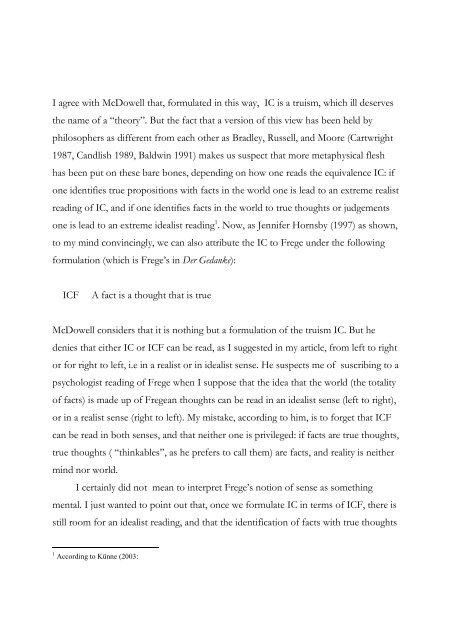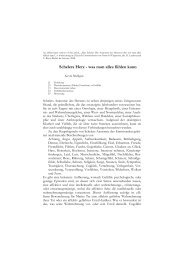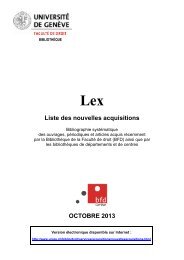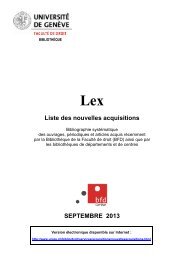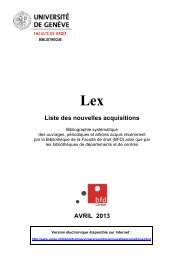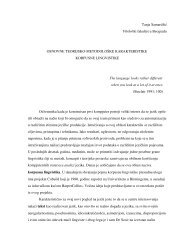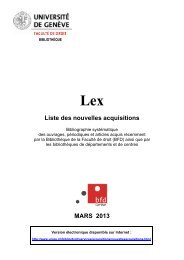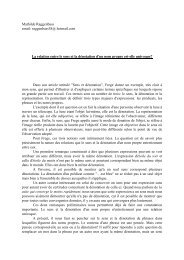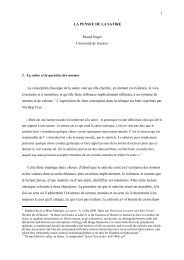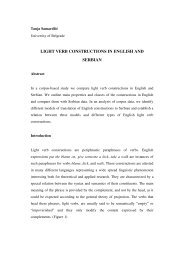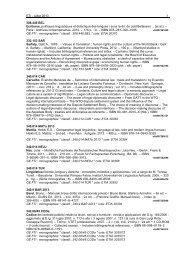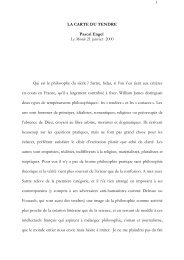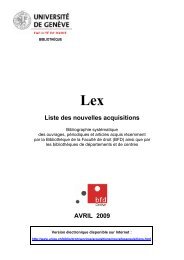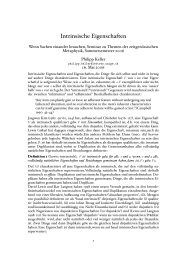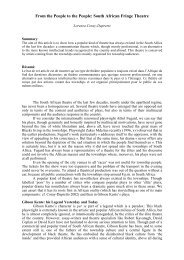2005 Unimportance of being modest A footnote to McDowel
2005 Unimportance of being modest A footnote to McDowel
2005 Unimportance of being modest A footnote to McDowel
Create successful ePaper yourself
Turn your PDF publications into a flip-book with our unique Google optimized e-Paper software.
I agree with <strong>McDowel</strong>l that, formulated in this way, IC is a truism, which ill deserves<br />
the name <strong>of</strong> a “theory”. But the fact that a version <strong>of</strong> this view has been held by<br />
philosophers as different from each other as Bradley, Russell, and Moore (Cartwright<br />
1987, Candlish 1989, Baldwin 1991) makes us suspect that more metaphysical flesh<br />
has been put on these bare bones, depending on how one reads the equivalence IC: if<br />
one identifies true propositions with facts in the world one is lead <strong>to</strong> an extreme realist<br />
reading <strong>of</strong> IC, and if one identifies facts in the world <strong>to</strong> true thoughts or judgements<br />
one is lead <strong>to</strong> an extreme idealist reading 1 . Now, as Jennifer Hornsby (1997) as shown,<br />
<strong>to</strong> my mind convincingly, we can also attribute the IC <strong>to</strong> Frege under the following<br />
formulation (which is Frege’s in Der Gedanke):<br />
ICF<br />
A fact is a thought that is true<br />
<strong>McDowel</strong>l considers that it is nothing but a formulation <strong>of</strong> the truism IC. But he<br />
denies that either IC or ICF can be read, as I suggested in my article, from left <strong>to</strong> right<br />
or for right <strong>to</strong> left, i.e in a realist or in idealist sense. He suspects me <strong>of</strong> suscribing <strong>to</strong> a<br />
psychologist reading <strong>of</strong> Frege when I suppose that the idea that the world (the <strong>to</strong>tality<br />
<strong>of</strong> facts) is made up <strong>of</strong> Fregean thoughts can be read in an idealist sense (left <strong>to</strong> right),<br />
or in a realist sense (right <strong>to</strong> left). My mistake, according <strong>to</strong> him, is <strong>to</strong> forget that ICF<br />
can be read in both senses, and that neither one is privileged: if facts are true thoughts,<br />
true thoughts ( “thinkables”, as he prefers <strong>to</strong> call them) are facts, and reality is neither<br />
mind nor world.<br />
I certainly did not mean <strong>to</strong> interpret Frege’s notion <strong>of</strong> sense as something<br />
mental. I just wanted <strong>to</strong> point out that, once we formulate IC in terms <strong>of</strong> ICF, there is<br />
still room for an idealist reading, and that the identification <strong>of</strong> facts with true thoughts<br />
1 According <strong>to</strong> Künne (2003:


